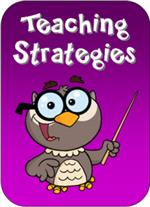Teaching & Learning
Page Navigation
How Do I Identify a Gifted Student?
-
Supporting Gifted Students - Educators
Educators play an important role in the lives of gifted children and their families. Their primary job is to help gifted children develop their intellectual and academic potential in collaboration with the child’s parents.
Teaching gifted children is both exciting and challenging. Research shows that teachers encounter a wide range of knowledge, skills, and abilities within their classrooms. Teachers must have the skills to differentiate their instruction to help children across the achievement spectrum to learn and grow every day.
Teaching gifted children may require special strategies like acceleration, flexible ability grouping, and specialized pull-out programming. Pre-service training and professional learning will help ensure that students have teachers ready to help them.Serving Gifted and Talented Learners (NAGC)
Serving Gifted and Talented Learners
THP is a quarterly publication designed with educators in mind. Each issue is filled with practical guidance and classroom-based materials to help you better understand and challenge your high-potential students. Scan through the library of THP articles and columns organized by topic and theme. Members have access to the entire archive of THP issues.
Gifted education strategies make a meaningful difference for high-ability students. Learn more about what gifted education in the classroom looks like.
Classroom teachers are the primary agent for identifying and serving gifted and talented students in our nation's schools. Read and learn more about the programming standards today.
NAGC leads the way for targeted and relevant education and training, offering webinars with national experts, the annual convention with hundreds of sessions in a wide variety of themes, and connections through Networks.
The CCSS and NGSS call for general education teachers to recognize and address student learning differences, and incorporate rigorous content and application of knowledge through higher-order thinking skills, but the nature of advanced work beyond the standards is not discussed.
STEM issues remain in the forefront of the discussion of U.S. competitiveness and the role of K-12 education in ensuring a pipeline of advanced talent.
Additional Resources
Join NAGC for Exclusive Member Resources
-
Resources for Teachers:
National Association for Gifted Children: Educator Resources
 How to Spot a Gifted Child
How to Spot a Gifted ChildStrategies for Teachers

http://www.adifferentplace.org/index.html
This site has a variety of differentiated activities across content areas. It is full of resources and also has a section for parents and kids.
http://www.internet4classrooms.com/grade_level_help.htm
This site is awesome! It has interactive websites grouped by grade level (K-8) and content area. My favorite!!
http://www.kidport.com/default.htm
Another interactive site for students K-8 across content areas
http://www.odysseyofthemind.com/
The Odyssey of the Mind site offers many ideas to foster creative thinking in your classroom. The “Practice Problems” and “Classroom Activities” sections could be used with all of your students.
This site provides information on the special needs of gifted youth, special programs available, and other topics in gifted education. Children will find contests, reading lists, and entertaining activities. This site has something for everyone.
http://blogs.edweek.org/teachers/unwrapping_the_gifted/
Articles about gifted education Science:
http://education.jlab.org/vocabhangman/
Science content vocabulary hangman
http://kids.nationalgeographic.com/
National Geographic online
http://www.bbc.co.uk/schools/scienceclips/ages/10_11/science_10_11.shtml
Interactive science activities
http://classroom.jc-schools.net/sci-units/plants-animals.htm#Interactive
Offers a variety of science resources and games
Reading:
http://www.randomhouse.com/teachers/
Literacy instruction resources that go along with popular children’s books
http://atn-reading-lists.wikispaces.com/Genre
Reading lists for a large variety of topics/genres
http://www.storylineonline.net/
Various books read by celebrities
Math:
http://edweb.tusd.k12.az.us/ekowalcz/math/elementary_web_sites.htm
Interactive math activities
http://www.netrover.com/~kingskid/Math/math.htm
Math games
More about Universal Design for Learning
The way people learn is a unique as their fingerprints!
- Universal Design for Learning at a Glance (video 4:36)
- Everybody learns! Planning for a wide spectrum of learners (video 6:35)
- Universal Design for Learning Guidelines: Designing Curriculum that works for all (video 6:20)
- Implementing UDL – the payoff! (video 3:33)
- Universal Design for Learning Graphic Organizer
- How to use UDL Guidelines Graphic Organizer (video 3:44)

